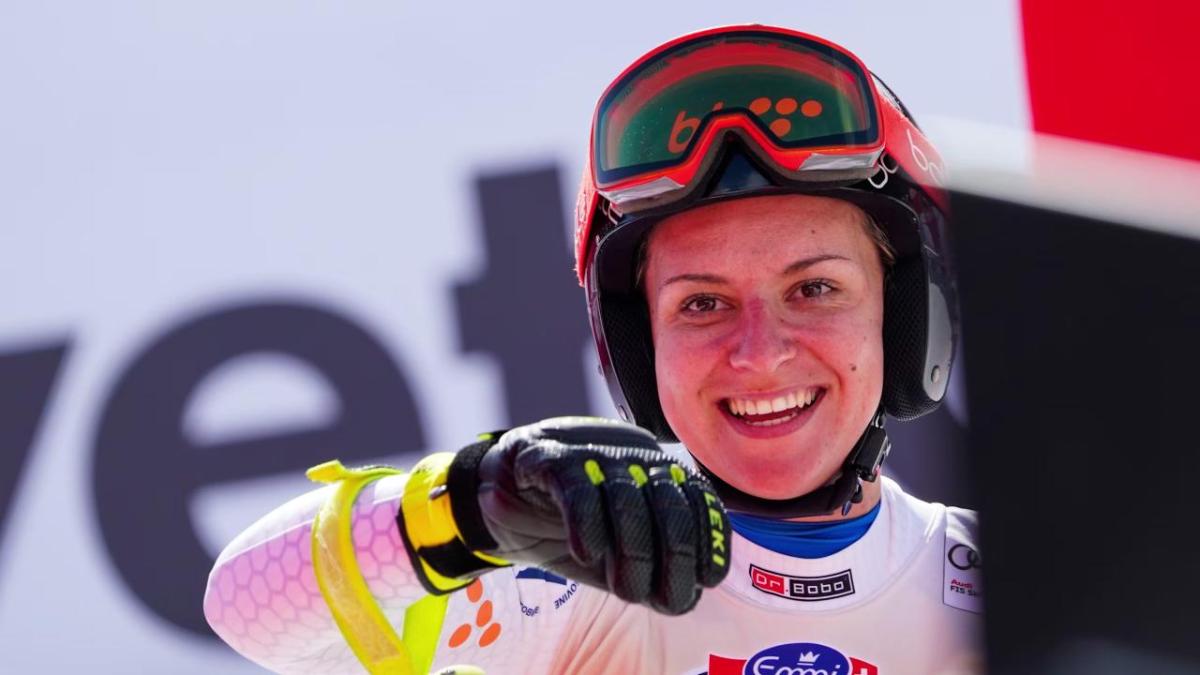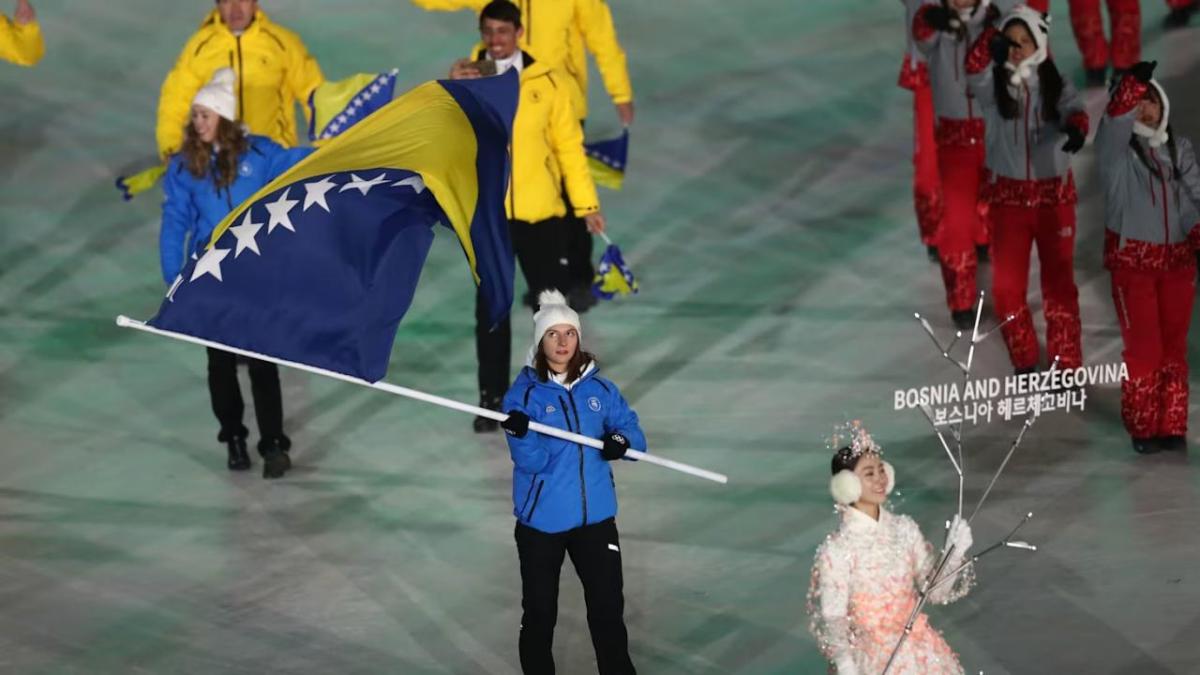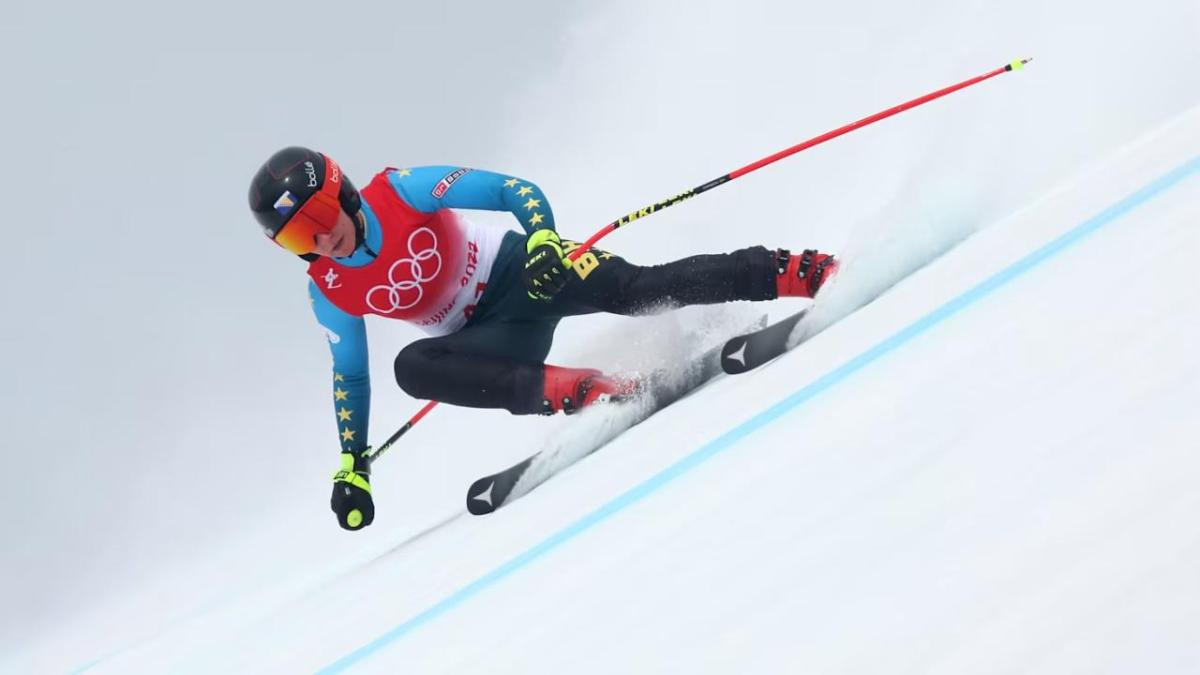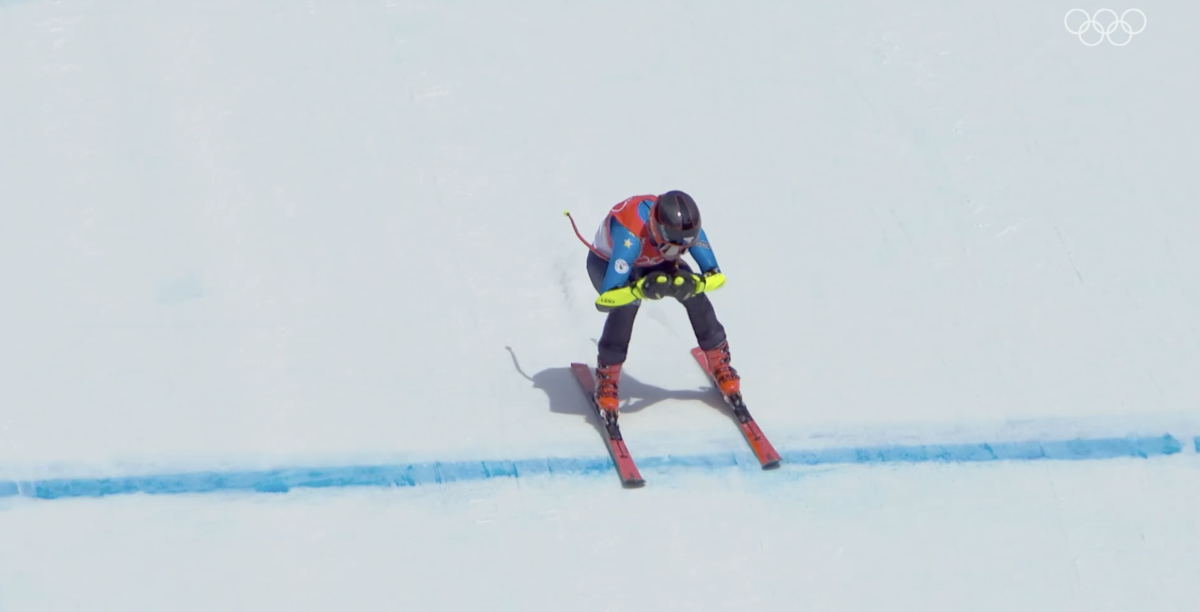Elvedina Muzaferija: Bosnia’s Alpine Skiing History-Maker Giving Young Women a Voice
The skier is an Olympic Scholarship holder and a trailblazer for Bosnia and Herzegovina. She also embraces her role as a mentor for young women in her country by speaking out against domestic abuse.
International Olympic Committee news
Making alpine skiing history for a small country is undoubtedly rewarding, but the responsibility of being on your own can also weigh you down.
Elvedina Muzaferija knows this feeling well.
At just 25 years old, she has already set new milestones for Bosnia and Herzegovina, a nation with little history of success in winter sports.
In 2020, she became the first female skier from the Balkan country to score World Cup points. Last year, she achieved two top-10 finishes (another first for Bosnia), including a fourth place in the Crans-Montana downhill.
It's not an easy journey competing alone.
“I really miss having a team,” she shared with Olympics.com at the recent World Championships in Saalbach, Austria.
“It would be really nice if now with me there were three other Bosnian skiers, but I accepted my fate that I have to make a path for everyone. And I’m doing pretty good right now.”
Blazing a trail for the next generations is a role she’s embracing. Since last year, she has even launched the event 'Skiing with Elvedina,' helping U14 and U16 kids with training: 'It makes me happy, paving a way and being an inspiration for young athletes in Bosnia and young skiers.'
Mustaferija's journey to the top
Mustaferija grew up in Visoko, an hour’s drive from Sarajevo, Bosnia’s winter sports capital.
She started skiing at five years old, getting her first lessons with her older sister on the Bjelašnica mountain, where the men’s alpine competitions were held during the 1984 Winter Olympics. “It was really cool knowing that the best athletes back in the day raced there.”
When she began competing, she quickly realised she had no real rivals in her country. At 14, she moved to Croatia to train: “I was winning everything in Bosnia, and I was also winning medals, the first for my country, at the Topolino and Pinocchio trophies, the small kids’ world championships.”
In 2016, she raced in her first major event, the Winter Youth Olympics in Lillehammer, Norway: “For me, it was way easier to have a spot because I came from Bosnia,” she admitted. Mustaferija competed in four events, with her best finish being 16th in the alpine combined: “I wasn’t the best, but it was such a big experience.”
Despite her young age, Elvedina has already two Olympic participations to her name - at senior level.
“My first Olympics was PyeongChang 2018. And there was probably the highlight of my life,” she recalled.
“It was so cool. I got a chance to carry the Bosnian flag at the Opening Ceremony as best qualified athlete. And I was the youngest one by far.
“It was so full of people; it was amazing. I was like, ‘don’t drop the flag!’ for the whole 400m as we walked.”
Then in 2022, she was again one of the flagbearers in Beijing: “My second Olympics was a completely different story. I went there to compete, and I was just doing speed disciplines.”
She wrapped it up with two DNFs and a 25th place in the Super-G: “As much as I wanted to do well, I made some very beginner’s mistakes, but I think all of it is part of the experience. Now I’m definitely looking forward to having my first Winter Olympics in Europe,” she said, with Milano Cortina 2026 just less than one year away.
Supported by the IOC Olympic Solidarity Programme
Mustaferija has made significant strides in the sport, but she also faces considerable challenges.
“Definitely, it wasn’t easy coming from Bosnia,” she admitted.
“Having to organise everything by myself, trying to find the budget, trying to fund everything because skiing is so expensive lately especially, that’s definitely been a struggle.”
Especially when competing against nations with greater resources: “Coming from a small country, you need to make your way. You don't have a system behind you. You don't have a team that you can train with, that can push you in every race and every training run.”
To support athletes like her, the IOC funds an Olympic Scholarship Programme, which Mustaferija joined before the 2018 Winter Olympics: “It’s a really big help knowing that you have something that’s coming every month,” she said.
“As an athlete who has to mostly provide everything by myself with my sponsors, I’m very thankful and very happy to have this scholarship.”
Other scholarship holders such as Zrinka Ljutić (Croatia) and Albert Popov (Bulgaria) have achieved World Cup victories this season, and she hopes to follow in their footsteps: “They showed that it’s possible and that you don’t have to be from a big nation to do something like that. They’re obviously a big motivation for me.”
No athlete from Bosnia and Herzegovina has ever stepped onto an Olympic podium at the Summer or Winter Games: “I think I can go really far, and the big goal is, of course, an Olympic medal,” she added.
A voice for young women victims of domestic abuse
Mustaferija, who graduated in Sport and Physical Education from the University of Sarajevo, also has a mission that goes beyond sports.
According to Human Rights Watch, gender-based violence and femicide remain serious concerns in Bosnia: “I have been working a lot for the safety of women in Bosnia. We had several domestic violence cases, which is pretty sad because it's all young women,” she explained.
“So I’ve been working to provide support, to tell them they’re not alone, that they should use their voice. I’ve always been the one using my voice. Like, if I have something that’s not right for me, I say it.
"It was my idea, together with my team, to use my social media platforms to raise awareness of the topic, and if that makes even a single person speak up, I'd be very happy!"
In 2024, the 25-year-old was invited to give a speech as a role model for young girls during the 'Generation equality' forum in Sarajevo, organised by UN Women: "Girls have a place in society even if it doesn't always feel like it, especially in underdeveoped countries" she said.
The skier is also involved in other social initiatives, such as helping children with special needs: “Every athlete needs to be selfish, but then off the hill, I feel like I need to use my voice if I can help someone in their life,” she said.
“As one of the most successful athletes in Bosnia, I want to use that voice, especially to help the victims, to tell them they’re not alone, but also to push the government to actually change something.”





